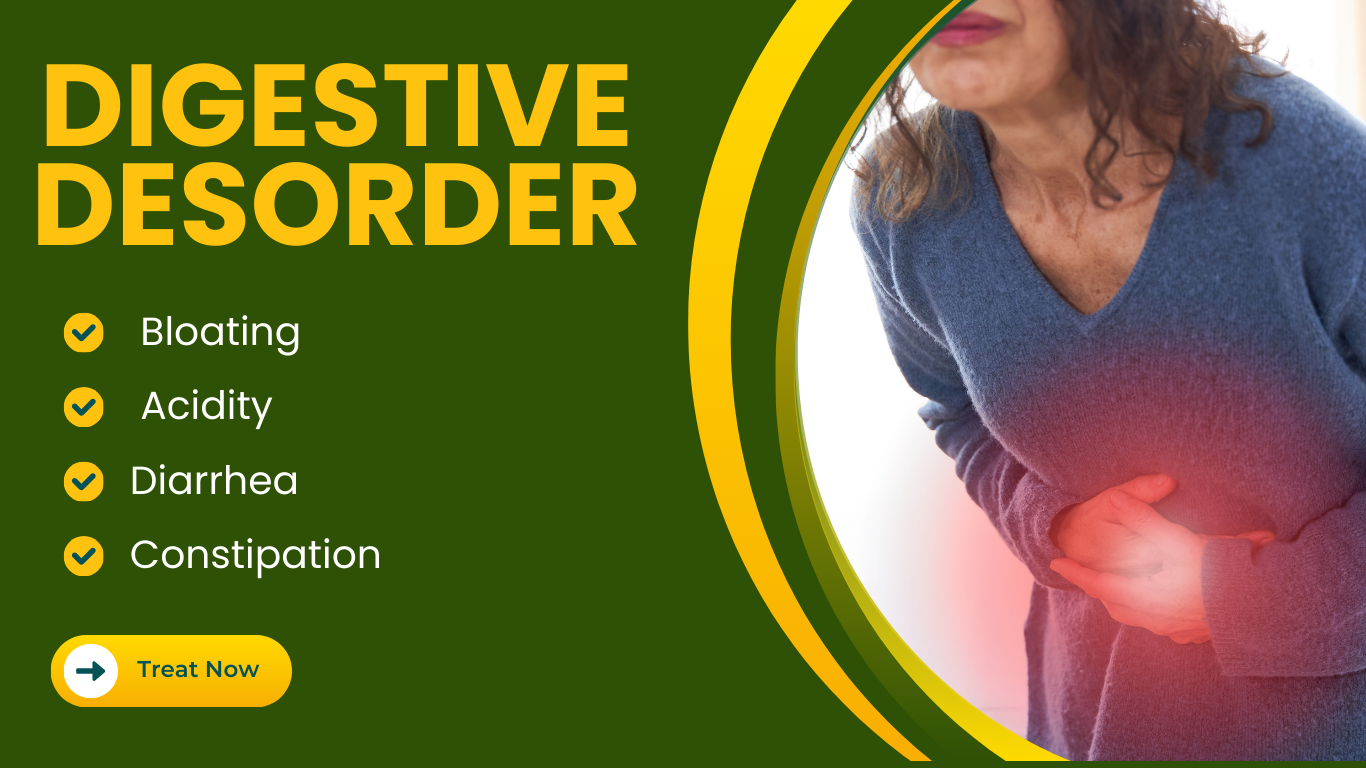1. What are digestive disorders?
Digestive disorders are health problems that affect the gastrointestinal (GI) tract, including the stomach, intestines, liver, pancreas, and gallbladder, leading to poor digestion and absorption of food.
2. What are the main causes of digestive disorders?
Unhealthy diet (spicy, oily, junk food)
Infections (bacterial, viral, parasitic)
Stress and anxiety
Smoking and alcohol
Overuse of painkillers or antibiotics
Autoimmune conditions (IBD, celiac disease)
Structural problems (hernia, gallstones)
3. What are the common symptoms of digestive disorders?
Abdominal pain or bloating
Heartburn or acidity
Nausea and vomiting
Constipation or diarrhea
Loss of appetite
Unexplained weight loss
Blood in stool or black/tarry stools
Fatigue
4. Can digestive disorders be prevented?
Yes.
Eat a balanced diet (fruits, vegetables, whole grains)
Stay hydrated
Practice good hygiene (wash hands, clean food properly)
Avoid overeating, spicy and oily foods
Exercise regularly
Limit alcohol, caffeine, and smoking
Manage stress
5. How can digestive disorders be treated?
Medications: Antacids, antibiotics, probiotics, anti-diarrheal, laxatives, anti-inflammatory drugs
Dietary changes: Eat fiber-rich food, avoid junk/spicy food, drink enough water
Lifestyle: Exercise regularly, manage stress, avoid smoking & alcohol
Surgery: For gallstones, severe ulcers, bowel obstruction, or cancer

